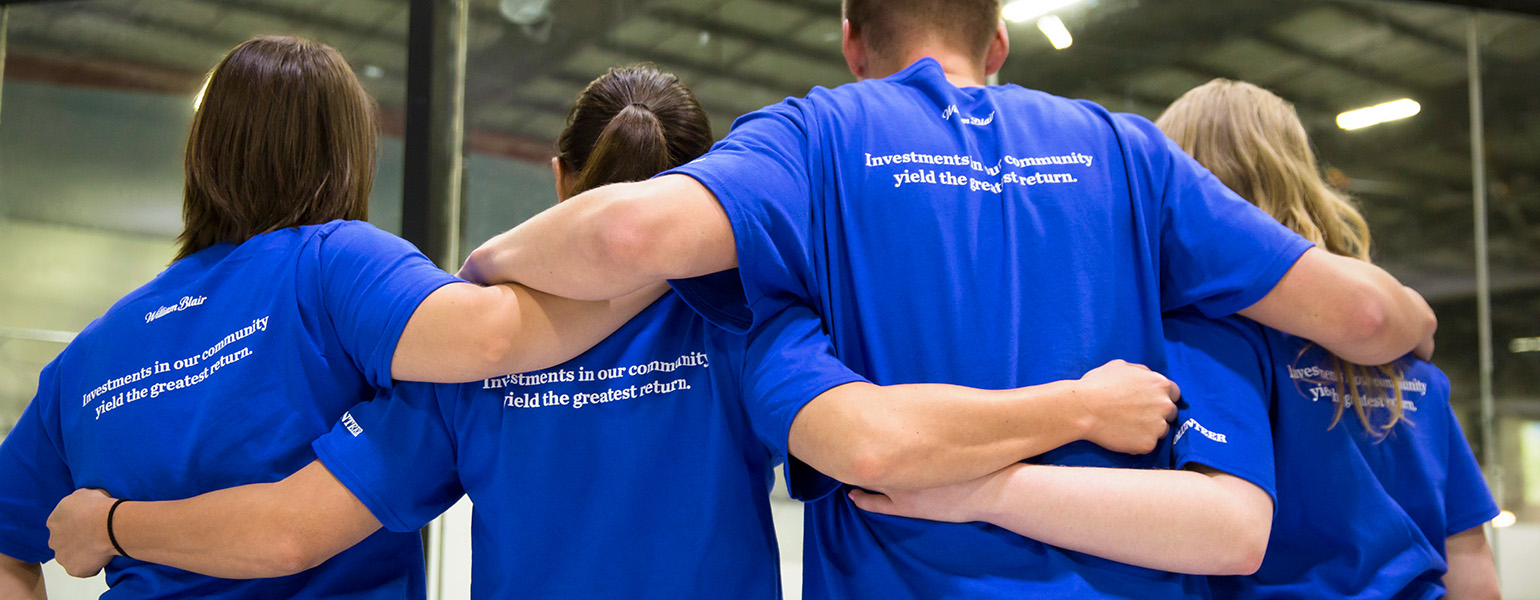Responding to the world’s environmental challenges, William Blair colleagues are stepping up their community involvement with nonprofits dedicated to creating a healthier, more sustainable world.
William Blair has a long tradition of engaging in communities, a tradition passed down from its founding leaders, to get involved and help solve problems. That engagement comes in many forms—from giving time and funding causes to sharing expertise.
One of William Blair’s newest community partnerships is with Delta Institute, an environmental nonprofit serving the Midwest.

The relationship began when Investment Management colleague David Fording joined Delta’s board earlier this year. Fording, who manages William Blair’s U.S. Equity Sustainability strategy and is passionate about climate-related issues, was impressed with Delta and its mission to solve complex challenges locally.
“They have deep expertise in nature-based climate solutions and resilient agriculture and are able to leverage their extensive relationships with hundreds of local communities, other environmentally aligned nonprofits and community groups as well as state departments of natural resources to solve real problems,” Fording said. “I got excited about their strategic plan to expand sustainable farming practices and find natural ways to offset the impact of stormwater and flooding in the region.”
Creating a More Resilient Midwest
Chicago-based Delta, founded in 1998, provides technical, management, and funding advisory services to community groups, helping them catalyze plans into projects to create healthier, more economically stable communities. Over the years, it has worked with hundreds of communities in eight states, impacting more than 2 million residents.
Delta has helped farmers in southeastern Michigan improve their soils; worked with communities in four states across the Great Lakes examining the barriers to installing green infrastructure to manage stormwater; diverted nearly 68,000 tons of waste from landfills into reused and recycled materials; supported emerging entrepreneurs in sustainability through its annual BOOST competition; and the list goes on.
“Throughout the entire arc of Delta’s history, we have been working at the intersection of sustainability that’s around the economy and the environment, with the community really being the center,” said Delta CEO William Schleizer.
Delta’s current strategic plan is to focus on three top initiatives: resilient agriculture to expand on-farm conservation, nature-based climate solutions to mitigate flooding, and providing sustainability services to bolster community development.
Schleizer says Delta’s goal for resilient agriculture is to work with 1,000 farmers over the next three years to transition 1 million acres to conservation-focused farming practices. Delta’s climate goals seek to reduce flooding in the region by capturing 100 million gallons of stormwater and securing $100 million in municipal green infrastructure investments by 2025.
“It’s an environment where a lot of projects are going to be launched over the next decade to address the climate challenges we are facing,” said Fording. “Delta can play an important role in project development and project management. This is an opportunity to get ahead of the curve.”
“Everything helps … moving to renewable energy, proactively addressing climate resilience, adopting more sustainable farming practices,” he added. “We all have to do our part locally. It’s the adage I learned in college: think globally, act locally.”




